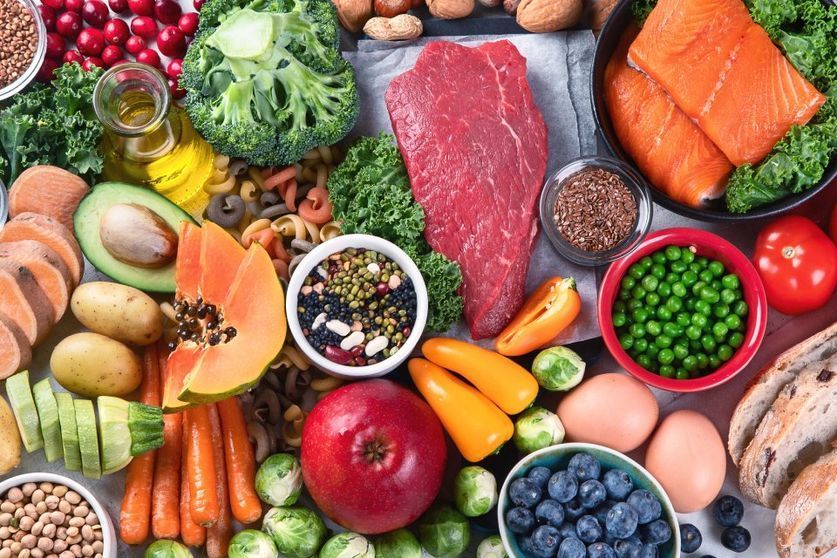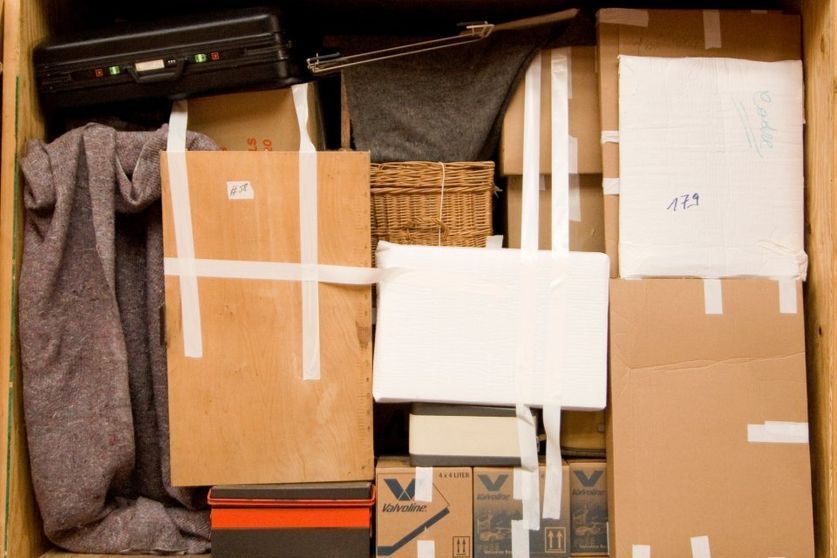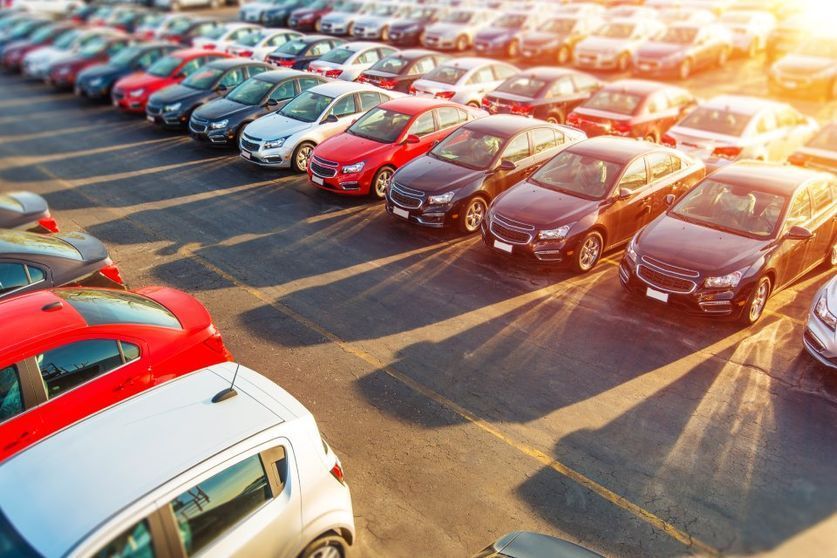Customs assistance from experts
We organise veterinary visits and take care of all the customs formalities for your border crossing.
We can even process your foods, take care of your international moves and ensure that your vehicles arrive safely in their new home country.

The Multi-Douane team is fully trained in working with the TRACES system.
We can enter all the information needed to establish the Common Health Entry Document (CHED/DSCE) in TRACES for the person responsible for declaring for an inspection by the veterinary border control services.
Animals
Are you traveling with your pet?
Have you adopted your faithful companion abroad?
We can help you to organise a veterinary visit and take care of the necessary customs formalities for your border crossing.
There are a range of different veterinary rules that apply when importing live animals from third countries and the EU*.
You may need an importation authorisation from the Swiss Federal Food Safety and Veterinary Office or the Service for the Inspection and Preservation of Species (CITES).
We recommend consulting the online guide “Travelling with dogs, cats and ferrets” and the brochure “Before you travel” for more information.
https://www.blv.admin.ch/blv/en/home/tiere/reisen-mit-heimtieren/hunde-katzen-und-frettchen.html
For animals travelling by plane, we take care of them from the moment they arrive at the airport until you come to pick them up.
It is important that you anticipate and plan the importation BEFORE the animal arrives in Switzerland.
*Distinctions are made between EU countries and third countries.
Third countries are all countries apart from EU member states, Iceland and Norway.
Foods
Do you want to bring a culinary delicacy or fruits/vegetables back from abroad to trade?
We will guide you through the processes with the different federal services and will take care of the importation formalities.
Meat, fish, milk, honey, eggs and any foods containing these products coming from third countries* are often subject to an inspection by the veterinary border control services or even banned from being imported into Switzerland.
For more information, please see:
https://www.blv.admin.ch/blv/en/home/import-und-export/import.html

Certain foods of plant origin (spices, peanuts etc.) from third countries* that present health risks are also subject to stricter controls. For more information, please see:
There is also the risk of fruits and vegetables from abroad* being contaminated by plant diseases or pests (insects, mushrooms etc.).
For more information, please see:

The Multi-Douane team is fully trained in working with the TRACES system.
We can enter all the information needed to establish the Common Health Entry Document (CHED/DSCE) in TRACES for the person responsible for declaring for an inspection by the veterinary or phytosanitary border control services.
It is important that you anticipate and plan the importation BEFORE the imported goods arrive in Switzerland.
*Distinctions are made between EU countries and third countries.
Third countries are all countries apart from EU member states, Iceland and Norway.

International moves
Has a life change resulted in you moving to Switzerland ?
Are you moving from Switzerland to France?
Moving house can be very stressful.
Luckily, we can take care of all the customs formalities and documents that you will need when moving your possessions to a new country.
Your personal possessions are exempt from customs duties.
That means you may be able to import your movable possessions, pets, collections of objects and vehicles into Switzerland without having to pay customs fees.
For this, you must:
- Transfer your domicile to Switzerland and certify it.
- Have used the imported goods for at least 6 months on a personal basis and continue to use them after importation.
You must also put together a dossier and present it to the Swiss customs office during your border crossing. Your dossier must contain the following information:
- Complete list with weights and values of imported goods (on plain paper, here's the moving effects list to download). These data can be estimated. The insured value can give you an indication.
- Identity document.
- Swiss residence permit or other document proving transfer of domicile (employment contract, rental agreement, etc.).
- Foreign vehicle license or registration certificate.
- Proof of purchase or rental of accommodation The entire Multi-Douane team can help you prepare your file and clear customs.
Vehicles
Have you found your dream car or motorbike but it’s abroad?
We can help you to import your new vehicle and will provide you with all the customs documents that you need to register it correctly.
The import conditions for a vehicle depend on its characteristics, the country that it comes from and your situation.
A distinction must be made between customs formalities (importation) and registration formalities.
In principle, all vehicles can be imported (although some require an authorisation) but not all of them can be registered and used on roads.
For example, registering a vehicle from the United States is more complex as the technical and anti-pollution standards, to name just a couple of examples, are different to those in Switzerland.

You can find more detailed information about importing vehicles on the FOCBS website:
We also recommend that you contact the automotive service in your canton to get the information that you need to register your vehicle: https://asa.ch/fr/page-daccueil/
To complete the clearance process, you must present the following information:
- Invoice or sales contract, possibly proof of payment
- Vehicle license/registration certificate
- Your identity card
- Possibly a proof of origin provided by the seller
In addition to the purchase price paid to the seller, the exchange rate and applicable import taxes are also taken into account.
Customs duties:
For vehicles manufactured in Europe, you may be exempt from customs duties.
You must justify the provenance of the vehicle with an EUR1 form.
For vehicles manufactured in other countries, you will be required to pay customs duties:
- on import into Switzerland: between CHF 2.- and CHF 15.- per 100 kg gross vehicle weight.
- on import into France: 10% of value for vehicles, 6% or 8% depending on engine capacity for two-wheelers.

Vehicle tax:
In Switzerland, certain types of vehicles (such as passenger cars) are subject to this tax.
It amounts to 4% of the value of the vehicle.
Value added tax:
In Switzerland, VAT is 7.7% and is calculated based on the value of the vehicle plus the applicable customs duties and vehicle tax.
In France, VAT is 20% and is calculated based on the value of the vehicle plus customs duties.
Your situation is also taken into account.
If you are moving house and have owned the vehicle for more than six months, then it can be included in your personal possessions.
If this is not the case, you will have to pay the previously mentioned taxes.
If you are buying a new vehicle that has not been registered before, a tax on CO2 emissions may be applied by the FEDRO.
For more information, please see:
https://www.astra.admin.ch/astra/en/home.html
https://www.bfe.admin.ch/bfe/en/home.html

Services for cross-border workers
Are you a cross-border worker and has your employer provided you with a company car?
On 1 May 2015, the Commission Implementing Regulation (EU) 2015/234 concerning the use of company cars provided by non-EU employers for employees residing in the European Union for personal purposes came into force.
We guarantee compliance for the use of this vehicle for private purposes.
If the employee decides to violate this law, the private journey can be considered an importation. This will result in the customs clearance of the vehicle with payment of VAT, customs duties and a fine.
In the case of a compliance audit, the formalities for importing the vehicle into France are subject to the approval of the owner, which may be either the employer, the renter or the leasing company, and can be completed either by the employer or the employee.
You will then be required to pay any customs duties (10% of the value of the vehicle), French VAT (20% calculated on the value of the vehicle + customs fees) and customs clearance fees.
In order to pay VAT for a vehicle in France, we will need the following documents:
- Complete list with weights and values of imported goods (on plain paper, here's the moving effects list to download). These data can be estimated. The insured value can give you an indication.
- Identity document.
- Swiss residence permit or other document proving transfer of domicile (employment contract, rental agreement, etc.)
- Foreign vehicle license or registration certificate.
- Proof of purchase or rental of accommodation The entire Multi-Douane team can help you prepare your file and clear customs.

This text modifies, while specifying, the implementing provisions of the Community Customs Code provided for by Regulation (CEE) no. 2454/93 concerning the temporary importation of means of transport intended to be used by a natural person resident in the customs territory of the Union.
Following this regulatory change, French residents employed by a Swiss company that provides them with a company car registered in Switzerland can continue to benefit from the exemption clauses in tax, customs and registration matters in a clear framework.
According to the terms of the new Regulation 2015/234, a total exoneration of import duties is granted to all means of transportation used for commercial or private purposes by a natural person resident in the customs territory of the Union and employed by the owner, renter or lessee of the means of transport based outside of this territory.
However, the use of professional vehicles for personal purposes is now more strictly constrained.
The vehicle can only be used for direct trips between the place of work and home of the employee (without any detours to buy bread or pick up children from school), or for the employee to complete a professional task specified in their employment contract.
There are two options available for cross-border workers:
- Either amend the employment contract to specify that the vehicle will be used exclusively for business purposes and the private purposes provided for in Regulation 2015/234.
- Or continue to use the vehicle for private purposes other than those set out in Regulation 2015/234 (e.g. vacations, weekends, etc.), subject to compliance with customs and tax requirements.
Advice and training
Please contact us for more information about the training sessions that we offer. Our dedicated advisors can help you throughout the entire process.


Other services
We offer a complete range of services.
Our team of professionals adapts to each customer, whatever their situation and needs.
Get in touch to find out more!
Address
Multi-Douane Services Sarl
Voie-des-Traz 20
1215 Le Grand-Saconnex
Phone
+41 227 88 11 37
Email
info@multi-douane.ch
Legal
![[company_name]](https://le-de.cdn-website.com/7f30e8874b54423caba2485cde871770/dms3rep/multi/opt/logo+%281%29-1920w.png)

